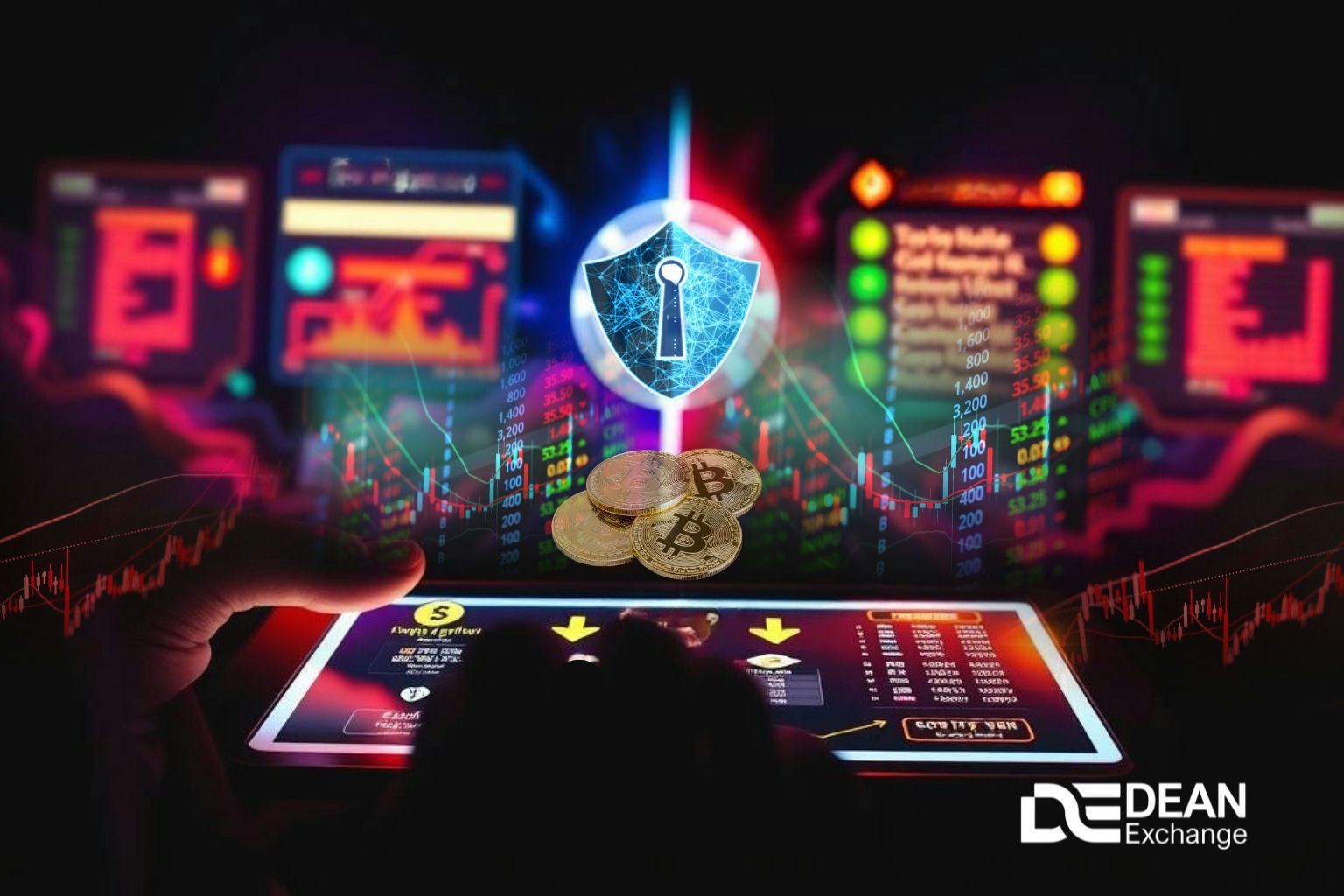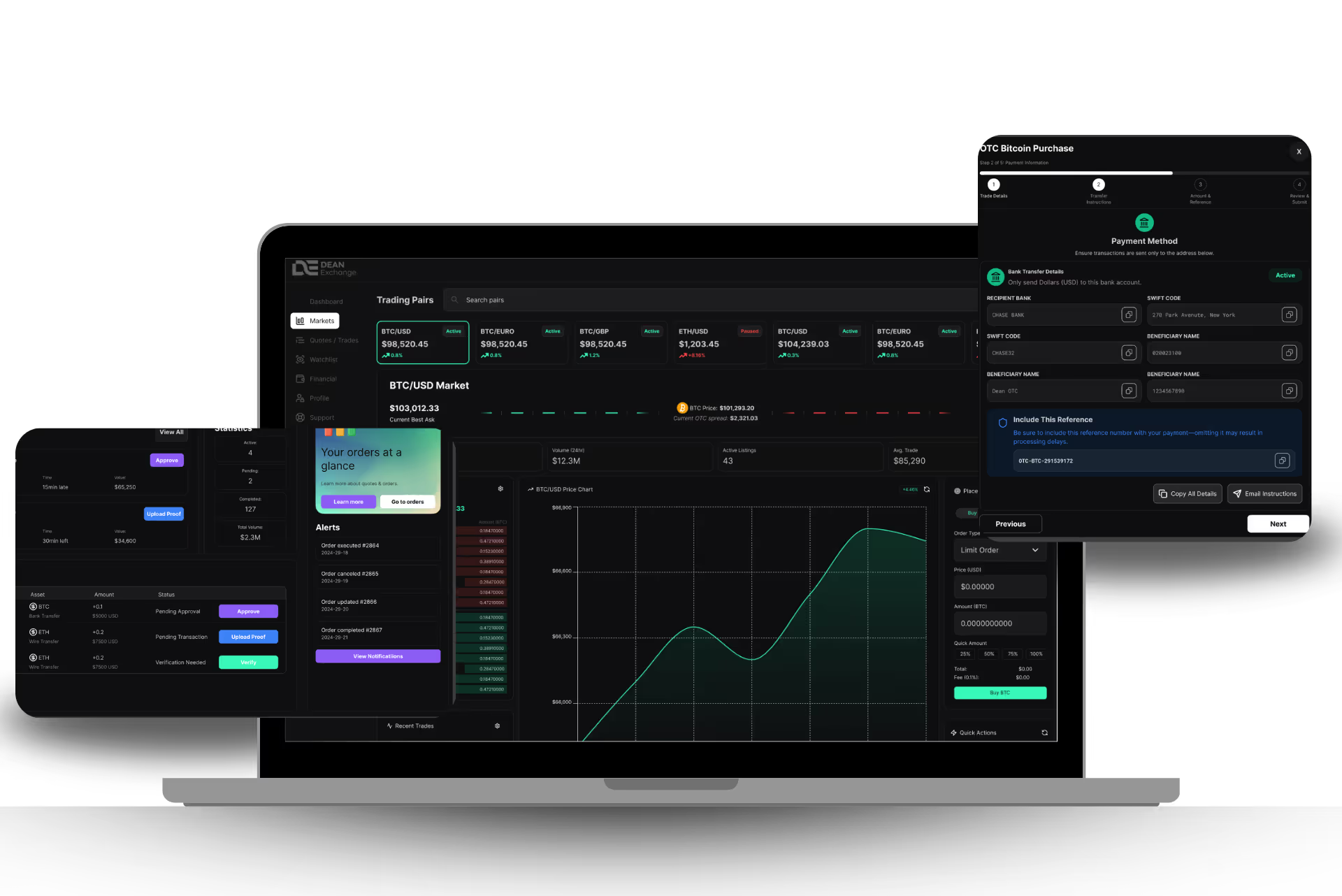By the
This is some text inside of a div block.
This is some text inside of a div block.
•
5
min read

The cryptocurrency landscape in 2025 continues to evolve rapidly, with greater user adoption, stronger institutional interest, and an expanding variety of exchange platforms. Whether you're a seasoned investor or just starting your crypto journey, one of the most crucial decisions you’ll make is where to trade. Choosing the best crypto exchange involves more than just user-friendly interfaces—it’s about balancing security, fees, and functionality.
This guide will walk you through what to look for when selecting a secure crypto exchange or a low fee crypto exchange, and why more users are turning to decentralized exchanges (DEXs). We'll also highlight how Dean Exchange helps traders make smart, safe, and cost-effective decisions in the ever-changing crypto market.
A crypto exchange is your gateway to the blockchain world. The platform you choose affects how easily you can buy, sell, and manage your assets—and whether your funds are protected from unnecessary risk.
In 2025, the market is divided into three key types of platforms:
Understanding how each type functions—and what it offers—can significantly improve your trading experience.
Trading fees might seem small at first glance, but over time they can eat into your profits. If you're an active trader or plan to scale your holdings, choosing a low fee crypto exchange can save you significant amounts.
Tip: Use calculators or fee comparison tools to estimate your annual costs based on your expected trading volume.
In 2025, cyber threats have grown more sophisticated, making exchange security a top priority. When evaluating platforms, make sure they include a strong mix of preventive and protective measures.
Reputable platforms store the majority of user funds in offline cold wallets, reducing the risk of hacking. Ask whether the platform publishes cold storage ratios and conducts third-party audits.
2FA provides a critical second layer of defense. Most top exchanges support both SMS and app-based (Google Authenticator, Authy) 2FA for login and withdrawals.
Platforms like Kraken and Binance allow users to restrict withdrawals to pre-approved wallet addresses, mitigating the impact of unauthorized access.
Look for platforms that offer insurance coverage against theft or platform failure. For example, Gemini and Coinbase maintain insurance policies to protect customer funds.
For decentralized exchanges, the security of smart contracts is paramount. Platforms should undergo audits from firms like Certik or Trail of Bits, and publish the results publicly.
Both CEXs and DEXs offer unique security trade-offs:
Pros:
Cons:
Pros:
Cons:
Ultimately, DEXs are ideal for privacy and autonomy, while CEXs are more user-friendly for beginners. A hybrid approach—using CEXs for entry and DEXs for trading and staking—can offer the best of both worlds.
Beyond security and fees, you’ll want an exchange that supports your specific needs. Consider the following:
This is where platforms like Dean Exchange stand out—not just facilitating trades, but providing deep blockchain education and real-time crypto tutorials.
At Dean Exchange, we believe that education is the foundation of smart trading. Our platform is designed to help users identify the best crypto exchange for their unique goals—be it fee reduction, asset safety, or access to innovative decentralized exchanges.
Whether you’re seeking a secure crypto exchange or trying to minimize trading costs, Dean Exchange ensures you’re making decisions backed by expertise and actionable insights.
Use this checklist to evaluate your next exchange:
✅ Transparent and low fees
✅ Cold wallet storage of user funds
✅ 2FA and optional whitelisting features
✅ Smart contract audit reports (for DEXs)
✅ Intuitive interface and mobile access
✅ Educational support and real-time updates
✅ Insurance or regulatory compliance
✅ Sufficient liquidity for smooth trading
In 2025, selecting the right crypto exchange means weighing far more than aesthetics or marketing hype. From cold storage policies to trading fees, and from smart contract audits to live learning tools, your choice of platform impacts your safety, costs, and success as a trader or investor.
Dean Exchange simplifies this journey with robust tutorials, live sessions, and trusted analysis. We equip you not only to trade but to trade smart, safe, and strategically.


Join our newsletter for exclusive insights, breaking crypto trends, and learning opportunities—delivered straight to your inbox.